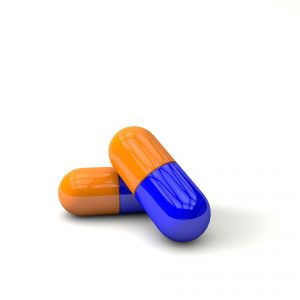There are a variety of veterinary market misconceptions. This page may help explain some of the common veterinary market misconceptions and false impressions.
 Veterinary pharmaceuticals and biologics don’t require approvals: To be legally marked and distributed in the US, veterinary pharmaceuticals must undergo a formal approval process with the respective regulatory agency.
Veterinary pharmaceuticals and biologics don’t require approvals: To be legally marked and distributed in the US, veterinary pharmaceuticals must undergo a formal approval process with the respective regulatory agency.
Veterinary pharmaceuticals and biologics have a very easy approval process: Not necessarily, many veterinary biologics and pharmaceuticals can take years and millions of dollars to develop.
If approved for human use, the pharmaceuticals and biologics can be automatically used in veterinary medicine without an approval: To be labeled and marketed for veterinary use, a pharmaceutical or biologic must satisfy those requirements as set forth by the respective regulatory agency which regulates the veterinary product.
The development of the identical molecule for human and animal health purposes will devalue the asset for human health. There is a long history of precedence that contradicts this misconception. The veterinary channels of distribution and conditions of use (prescription) are vastly different from the human pharmaceutical market, creating a legal and commercial barrier to value erosion. Antibiotics and steroids are excellent examples of the same product or molecule being used in both human and veterinary medicine, yet often at very different price points.
If an identical product (or formula) is marketed in both human and veterinary medicine, but the cost for the veterinary version is substantially less, physicians may choose to use the veterinary formula thereby reducing human sales. Physicians are not eligible to prescribe a veterinary labeled product, for humans or animals. Interestingly, in the absence of an approved product for veterinary use, veterinarians are able to prescribe human pharmaceuticals under certain conditions covered by the Animal Medicinal Drug Use Clarification Act (AMDUCA).
If a drug or vaccine is already approved for humans, the veterinary approval is very easy. To obtain a veterinary approval from the FDA-CVM or USDA-CVB, target animal studies are conducted to verify the product’s safety and efficacy for that particular species. This process can take years, and often millions of dollars.
Veterinarians don’t need to see clinical trials, we have some case reports and dozens of great testimonials. Veterinarians are as demanding as physicians when it comes to evidenced based medicine, so companies better be prepared to have just that, evidence. Peer reviewed publications are key to gaining market adoption and confidence of key opinion leaders.
Pet owners will spend anything on their pets. Although some people do spend great amounts of money on their pets, this represents the vast minority.
Veterinary products are not regulated. Most (if not all) products labeled for use in veterinary medicine will fall under the purview of a regulatory agency. Although not all products require a formal approval process (medical devices, nutraceuticals, etc.), their labeling should be in compliance with the regulatory agency which has product purview. For instance, a veterinary medical device should not make drug claims, or it could be considered misbranded and be subject to regulatory action.
All products are regulated by the Food and Drug Administration’s Center for Veterinary Medicine (FDA-CVM). Although the FDA-CVM regulates veterinary drugs, they do not regulate veterinary biologics such as immune modulators, immune stimulants, vaccines, toxoids, antitoxins, antivenoms, and diagnostic kits (veterinary immunobiologics). Veterinary immunobiologics are regulated by the United States Department of Agriculture.
More About Veterinary Products and Veterinary Regulations